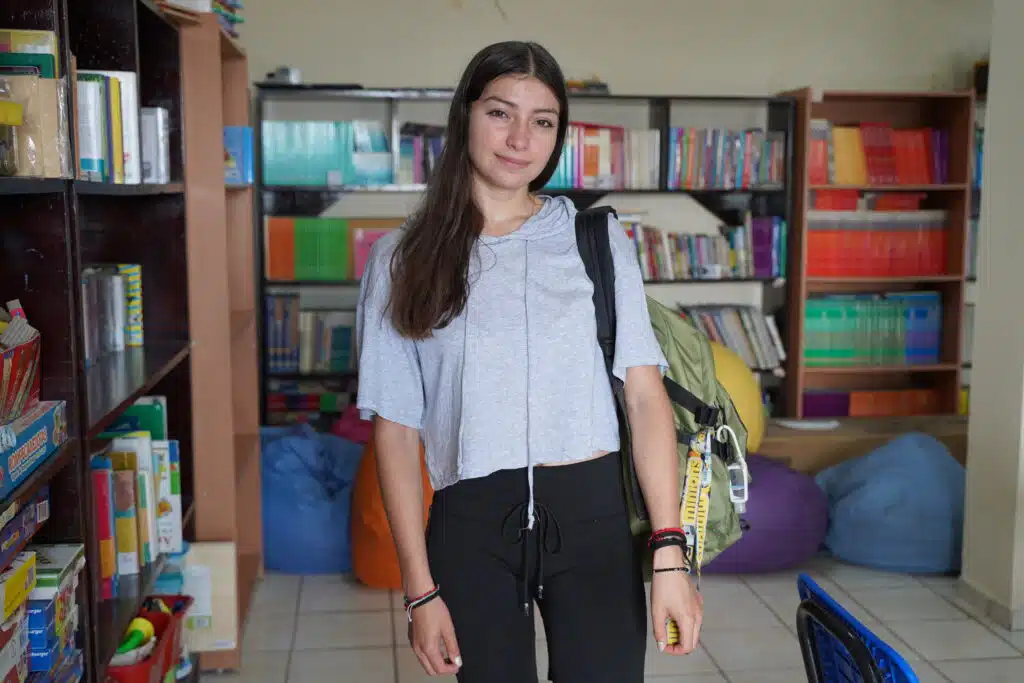On International Day of Education, our partner Children International shares how education and workplace training can break the cycle of poverty for generations to come. Read more about their innovative programming below.
January 24th is the sixth International Day of Education, celebrating the role of education for peace and development.
In 1948, the United Nations (UN) declared education a human right, proclaiming that primary school should be free and compulsory. The UN’s Millennium Development Goals, established in 2000, improved primary enrollment in developing regions from 83% to 91% by 2015.1 The UN’s current Sustainable Development Goals (SDGs) further highlight learning’s essential role in achieving a more humane world. SDG No. 4 aims to “ensure inclusive and equitable quality education and promote lifelong learning opportunities for all” by 2030.2
Yet, despite decades of advancements and the international community’s continued focus on quality and accessibility, “education is in a state of emergency,” said UNESCO Director-General Audrey Azoulay.
Six of 10 children cannot read and understand a simple story at 10 years old.3 Approximately 250 million children and youth are out of school.4 The COVID-19 pandemic exacerbated the education crisis, especially in developing countries where schools remained closed for several years with only basic options for remote learning.5 The impacts have been detrimental — substantial learning loss and school desertion.
Education outcomes are directly linked to youth employment outcomes. The number of young people in employment fell by 34 million in 2020 at a higher rate than that of adults.6 According to the most recent statistics from the International Labor Organization, nearly 25% of young people are unemployed and not receiving an education or vocational training.
“Without inclusive and equitable quality education and lifelong opportunities for all,” according to UNESCO, “countries will not succeed in achieving gender equality and breaking the cycle of poverty that is leaving millions of children, youth and adults behind.”
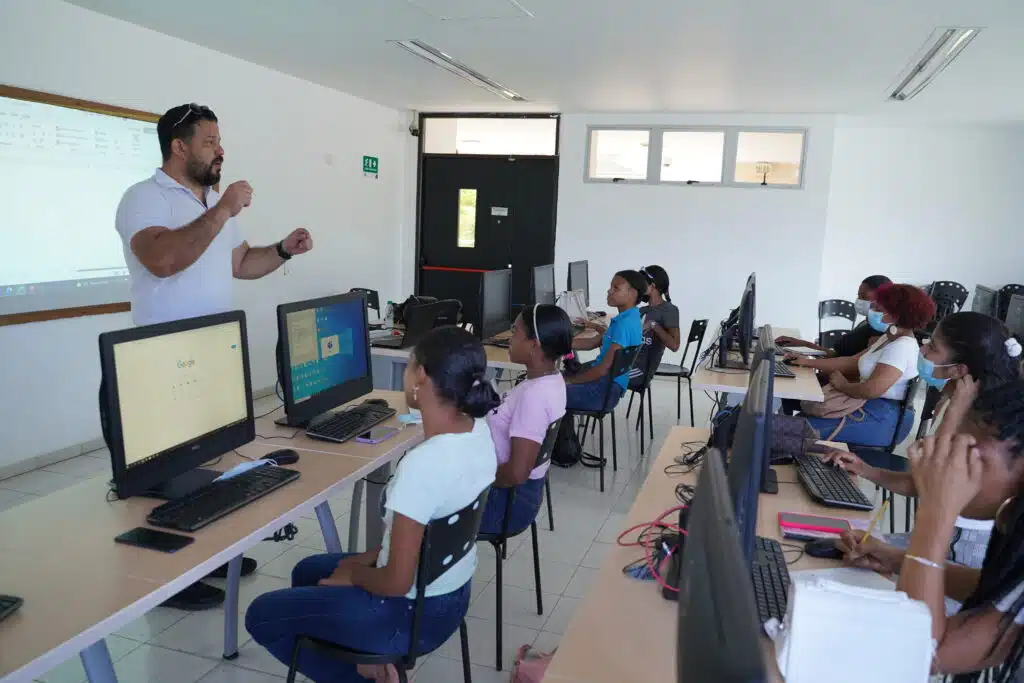
Children International’s approach to ending poverty through inclusive and equitable quality education
Children International, a global child and youth development organization, works with children and youth ages 2–24 in 10 countries across the Americas, Africa, and Asia. They strive to ensure program participants become confident young adults who are sustainably employed and have the mindset, skills, and tools to reach their goals and positively influence their community.
From early childhood to young adulthood, Children International offers participants a foundational set of programs to ensure they are healthy, educated, and equipped with 21st-century skills. Through the Early Childhood Care and Development program, young children develop physical, cognitive, language, and socio-emotional skills, preparing them to enter primary school. Additional education programs ensure children and youth can access school and succeed academically by providing material and financial support, tutoring, and other enrichment programs. As a cross-cutting theme, Children International implements life-skills training to teach children and youth critical skills that support their progress through school and into the workforce.
Children International works diligently to ensure the right to education for children and youth; empower young people to think, set goals, and identify a purpose; and achieve sustainable development by linking education to employment and economic growth for young people and their families.
Employment is the key to ending generational poverty
Employment empowers young people to take control of their futures, and Children International’s capstone program, Into Employment®, prepares young adults ages 18–24 to fill the needs of local job markets. The program extends the ripple started through Children International’s foundational programs by helping young people find sustainable careers. And it’s working. Youth graduate with the financial ability to support their families and change their communities.
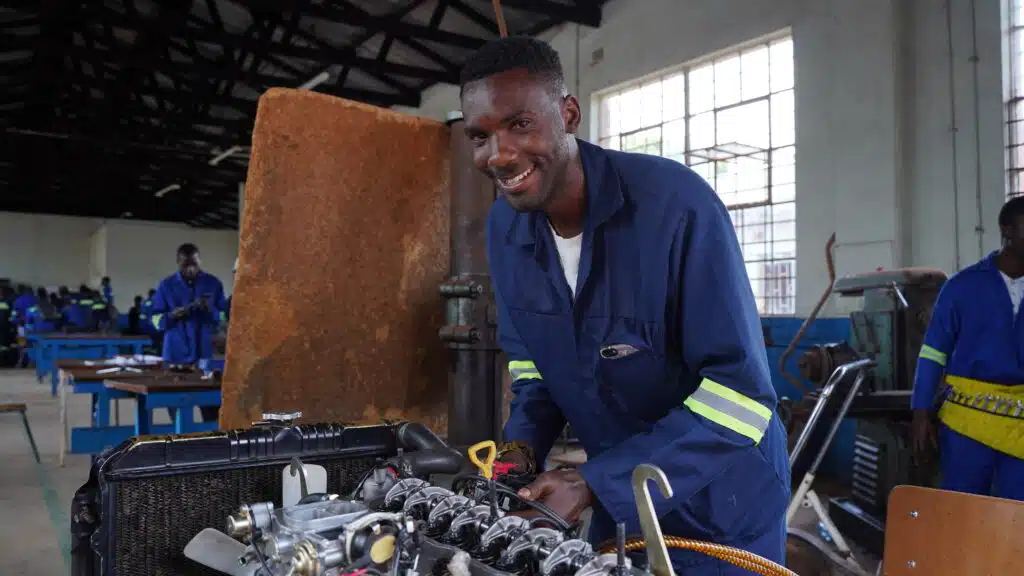
Into Employment is a multifaceted approach that is tailored to local industries’ workforce needs and to the participants’ skills, interests, and future goals. Children International provides a local solution to a global problem by working closely with more than 100 partners — universities, technical training institutes, local governments, industry leaders, and employers. The program includes:
- Technical training: Scholarships for university or vocational education and certificates, access to STEM and upskilling curriculum to prepare a young person for the local job market.
- Life skills: Youth become confident, strong communicators, and value-driven team players — skills that truly set them apart in the workplace.
- Career readiness: Individual support from staff to help create résumés, practice interviewing, search for jobs, and connect with employers.
- Job placement: Children International helps place youth in jobs with local companies and provides guidance as they begin their careers.
- Youth entrepreneurship: Training on business fundamentals for youth interested in launching and operating small-scale ventures.
“Through Into Employment, young people leave empowered,” said Florelena Perez, employment officer at Children International-Honduras. “There is a clear transformation in their lives. Employers are looking for Children International graduates. And thanks to this, our graduates can improve their quality of life.”
Stable work unlocks opportunities, promotes sustained and inclusive economic growth, and increases a family’s income. Up to 86% of Into Employment graduates find employment within six months of program completion, often tripling their family’s income. In 2023, 93% of youth enrolled in Into Employment successfully completed the program.
Globally, young men are almost 1.5 times more likely to be employed than young women.7 Children International addresses this disparity by enrolling more women than men (71% of participants are young women) in Into Employment, educating families on the benefits of women entering the workforce, and encouraging local employers to adopt more equitable hiring practices.
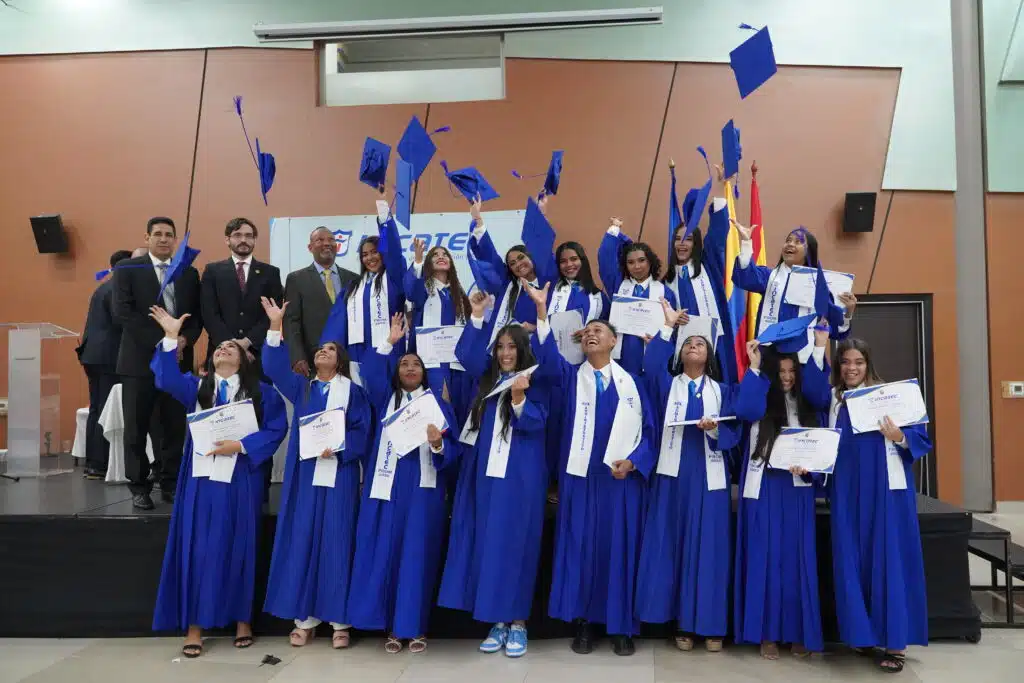
Education creates opportunity and transforms futures
During this year’s International Day of Education, Children International is celebrating the lifelong impact of learning and career development among children, youth, their families, and their communities. Through Into Employment, the organization links the outcomes of SDG 4: Education to SDG 8, which aims to promote sustained, inclusive and sustainable economic growth, full and productive employment, and decent work for all.
“I believe that Children International [does] an incredible job because they are seeking to change people’s lives,” said Paulina Sandoval, an employer partner in Ecuador. “And today, I know they do, not at 15 or 20 years old; they do so from childhood because [Children International gives] them the opportunity to study.”
Meet Into Employment youth who have created positive change in their lives

Proving success is possible
In the rural barangay Santa Teresa, in Bicol, Philippines, Mildred lives with her parents and seven younger siblings. Before Mildred found formal employment, the family of 10 survived on her father’s single income, which he earned as a tricycle taxi driver. “What we have depends on the volume of passengers,” Mildred says. “Sometimes, he earns good money, about 300 pesos (USD $5.50) per day. On other days he earns little, about 100 pesos (USD $1.75).”
On the hard days, the family would eat only the sweet potatoes they could harvest on their land. Their father would take the children to school most days, which limited his potential daily earnings. Mildred recalls being intimidated in elementary school by other classmates whose families could afford multiple uniforms, while she washed her only uniform every evening to wear the next day.
These experiences only motivated her to strive for more. After participating in several Children International youth programs and finishing high school, Mildred enrolled in a local college, which, in the Philippines, offers free tuition. But it wasn’t until she enrolled in Children International’s career-readiness training that she felt confident enough to begin looking for a job. “I really needed this training to be prepared for employment,” Mildred says.
Thanks to Into Employment, Mildred earns a stable income and helps her family. And, as the eldest child, she has become a role model to her siblings — showing them that with hard work and determination, they can change the trajectories of their lives.
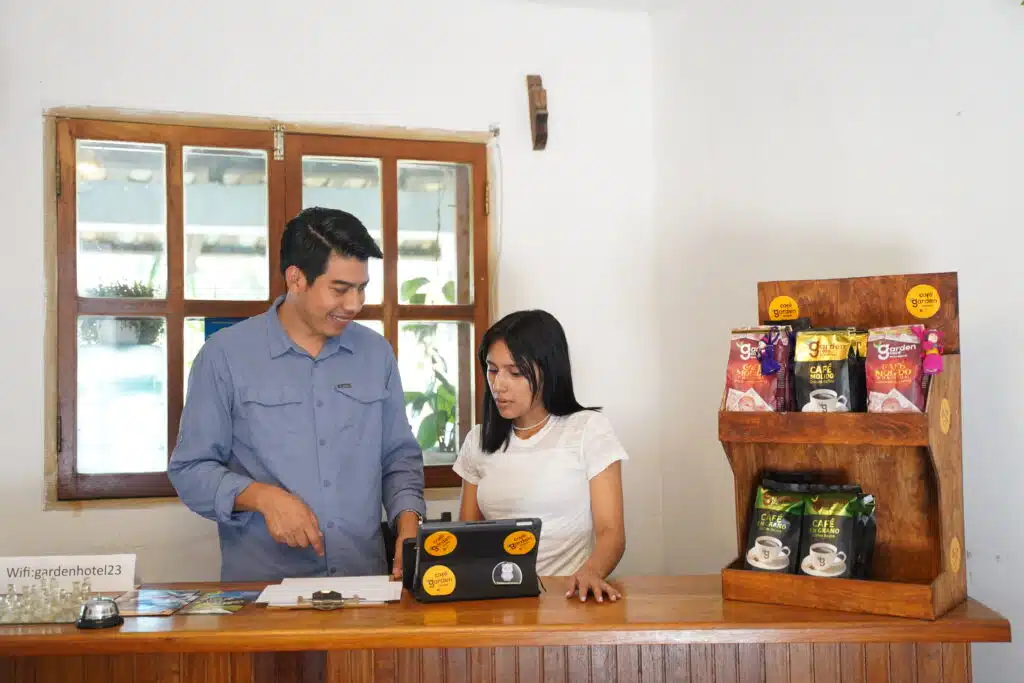
Defying the odds of poverty
Lester González, 31, owns a coffee shop and roastery in Honduras and is a Children International graduate. He maintains ties to Children International by partnering with Children International to provide job training and employment to participants in Into Employment.
“I believe in Children International youth,” Lester said. “Everyone should have the same opportunities to progress.”
Lester‘s is the ultimate success story: A child in poverty is supported through Children International‘s foundational programming. Not only does he obtain formal employment, but he also invests in other young adults who see him as a role model for rising out of poverty. Lester is proud to be a part of the organization that positively impacted his life, helping young people in the same position as he once was.

